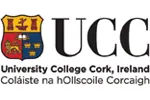We're moving! This site will be relocating to goingto.university in 2026. Please update your bookmarks to the new address.


| The award | How you will study | Study duration | Course start | Domestic course fees | International course fees |
|---|---|---|---|---|---|
| BSc (Hons) | Full-time | 4 years | September | EU 3000 | EUR 3000 |
Overview
Chemical Physics sits at the intersection of chemistry and physics. It aims to understand the structure, energies and transformations of matter and its dynamics at a molecular level.
The BSc Chemical Physics degree at UCC provides a solid grounding in both physics and chemistry, and is ideally suited to students who are curious about how and why the world works at a molecular level. With a broad education in the physical sciences, highly developed problem-solving and analytical skills, and extensive training in experimental methods, graduates of Chemical Physics may be assured of excellent employment prospects in industry, government, research and teaching.
The BSc in Chemical Physics at UCC is internationally accredited by the Institute of Physics.
Course Details
Entrance to the BSc Chemical Physics degree is via the Physics and Astrophysicsor Chemical Sciencesstreams.
Year 1 Modules:
Refer toCK406andCK408
Years 2 Modules:
Core
Computational Physics; Electrostatics and Magnetostatics; Energetics and Kinetics; Experimental Methods; Fourier Methods; Main Group and Transition Element Chemistry; Quantum Physics; Spectroscopy; Structure, Bonding and Quantum Mechanics; Thermodynamics and Statistical Physics; Multivariable Calculus
Electives
States of Matter; Organic Chemistry for Environmental Scientists
Year 3 Modules:
C/C++ Programming with Applications; Computer Modelling and Numerical Techniques; Condensed Matter Physics; Electromagnetism; Environmental Chemistry and Analysis; Experimental Methods; Materials Chemistry; Optics; Physical Chemistry; Quantum Mechanics; Scientific Communication and Information Literacy Skills
Year 4 Modules:
Core
Chemical Physics; Advanced Chemistry Research Project; Advanced Physics Research Project
Electives
Lasers, Photochemistry and Spectroscopy; Interfaces, Microscopy and Modelling; Advanced Nano Materials; Atmospheric Chemistry and Air Pollution; Advanced Quantum Mechanics; Advanced Electromagnetism; Advanced Condensed Matter Physics; Introduction to Lasers and Photonics; Physics of Semiconductor Devices.
The practical component of the course complements the knowledge gained in lectures. Experimental skills and insight are developed during the practicals, which cover chemical synthesis and compositional analysis; preset and open experiments involving the use of research equipment, electronics and interfacing, error analysis and interpretation; and report writing and data dissemination (seminars and poster presentations).
This exposure to all aspects of experimental methodologies gives students the ability and confidence to tackle the Year 4 research projects. The practical training also provides a firm foundation for postgraduate research and for technical careers in industry.
See theCollege Calendar for more detailed information on the programme and see the Book of Modules fora more detailed description of programme modules.
Fact File
Course Code: CK406; CK408
Course Title: Chemical Physics
College: Science, Engineering and Food Science
Duration: 4 Years
Teaching Mode: Full-time
Qualifications: BSc (Hons)
NFQ Level: Level 8
Costs: Full-time EU/EEA/Swiss State undergraduate students may be exempt from paying tuition fees. The State will pay the tuition fees for students who satisfy the Free Fees Criteria. In 2016/17 the Student Contribution Charge will be EUR 3,000 and the Capitation Fee will be EUR 165.
2017 Entry Requirements: Refer to CK406 and CK408
Entry Points: 2016: 460 (CK406); 525 (CK408)
Course Practicalities
Expected lecture hours:Students generally attend 15 to 20 lectures per week. Lectures are generally held in the mornings.
Expected lab/practical hours:Students generally attend two or more practicals per week. Practicalsare generally held in the afternoons. In Year 4, practicals are replaced by the research projects, which account for most time outside of lectures.
Assessment
Written exams will take place before Christmas and in May. Not all modules will have formal examinations. Many modules use other types of assessment including in-class tests, online exercises, performance in laboratory practicals as well as seminars. Presentations and written reports for the research projects and some modules form a significant portion of the overall assessment at the advanced undergraduate level.
Application Procedure
Refer toCK406andCK408
Further Contact Information
Dr Andy Ruth
T: +353(0)21 4902057
2017 Entry Requirements: Refer to CK406 and CK408
Entry Points: 2016: 460 (CK406); 525 (CK408)
Contact University College Cork (UCC) to find course entry requirements.
Below are some suggested courses at other providers that you may also be interested in:
Commercial and Corporate Law LLM, LLM, LLM
Centre for Commercial Law Studies, Queen Mary University of London
Find out moreInstitute of European Studies, Jagiellonian University
Find out moreNursing Professional Bachelor Degree, BNurs
KdG University of Applied Sciences and Arts
Find out moreIf you do not meet the entry requirements for this course then consider one of these courses from another institution:
There are 338 other courses listed from University College Cork (UCC). A selection of these are displayed below:
Join the StudyLink email list and never miss a chance to turn your study abroad dreams into reality!

Find out more about studying in Ireland